
Visa exemptions for certain nationalities rei...
read more

Clandestine gold dredging poses a threat to the safety of inland waterways navigation and the environment
Alongside fishing and subsistence agriculture, gold mining has been a significant source of income for the poor riverine population of the Amazon region for many decades, mainly upstream of the Madeira River and other streams near Porto Velho in Rondônia, where mining licensing is precariously regulated. In the neighbouring state of Amazonas, the activity is forbidden but remains widespread and tolerated.
Dredging rafts can be seen in plain sight prospecting gold in the many tributaries of the Amazon River, particularly during the drought season, when dredging is intensified, and rows of mining rafts become part of the riverside landscape.
Most rafts engaged in gold dredge are rudimentarily built, although some are equipped with air conditioning and satellite internet. They typically carry a suction dredger and other apparatus to excavate the riverbed and extract gold, invariably using toxic mercury to separate the metal from sediments.
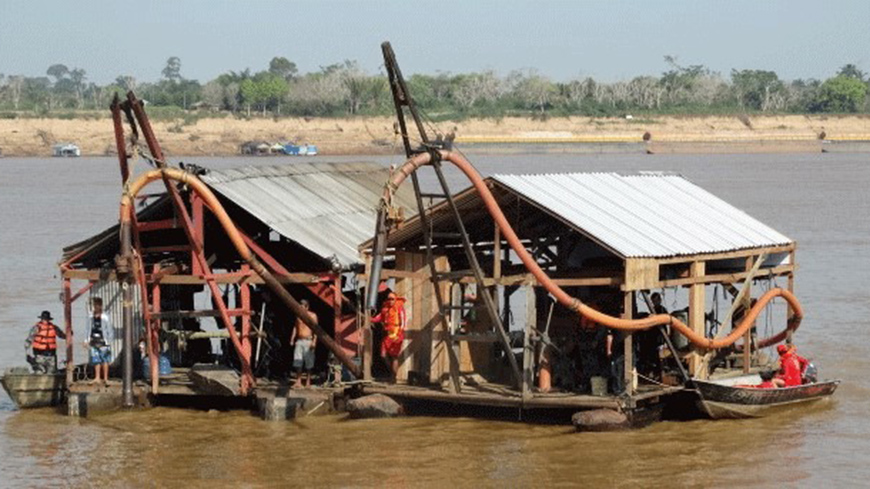


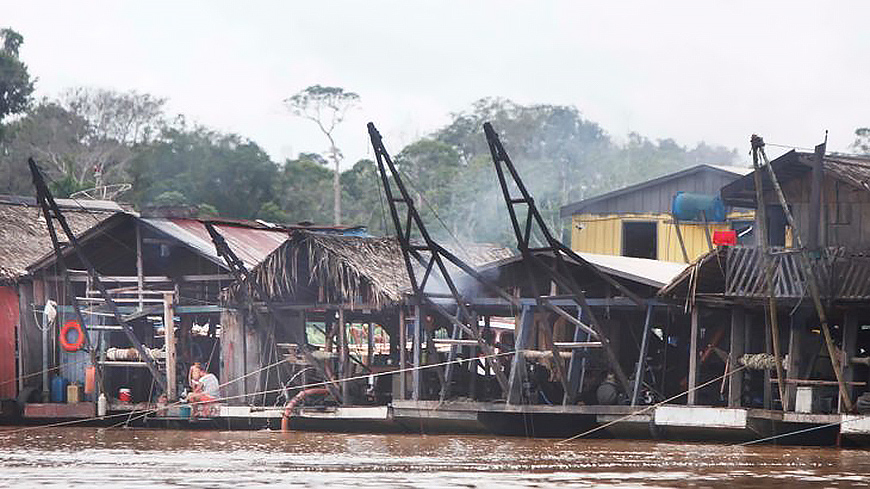
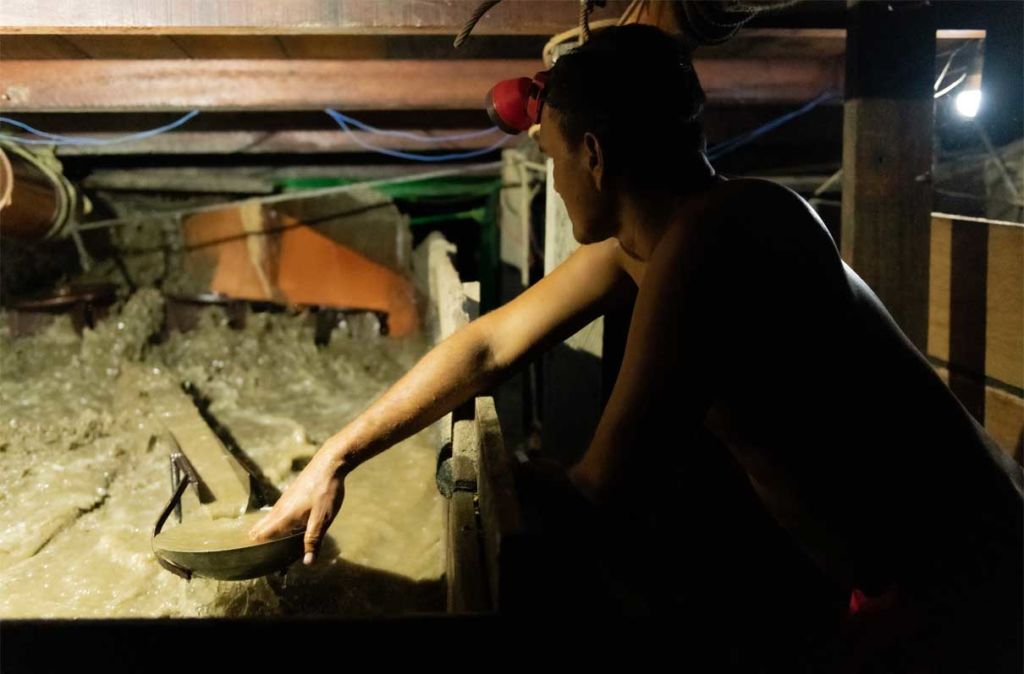
Major organised miners own large fleets of unlicensed mining rafts, tugs and pushers, usually without licenses. They recruit the workforce from riverside communities and miners’ unions to run the labour-intense operations. Independent miners typically live and work on rafts with their families, river mining being their only means of subsistence.
Miners often have little or no awareness of gold dredging hazards to commercial waterway transport and the harmful effects of the discharge of contaminants into the sensitive Amazon Basin. Crews on those rafts often have no formal education and ignore the basic rules of navigation.
Illegal mining in the Amazon is carried out indiscriminately across protected areas and within indigenous reserves. Federal and state authorities are fairly familiar with the locations where the practice occurs, but no effective measures have been taken by the authorities to address the situation. From time to time, the Federal Police and the federal environmental agency IBAMA search and destroy boats and equipment and impose penalties, usually in the form of fines that often are never paid.
About two weeks ago, more than three hundred mining rafts of all sizes and types gathered downstream of the Madeira River, between Nova Olinda do Norte and Autazes, in Amazonas. The unusual assembly of several rows of clandestine rafts, boats and tugs attracted national and international attention and eventually forced the otherwise lenient authorities to act.
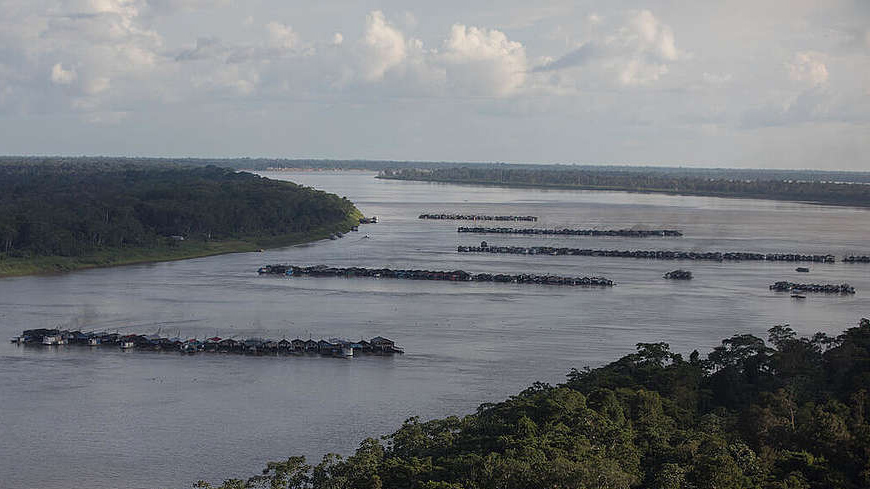
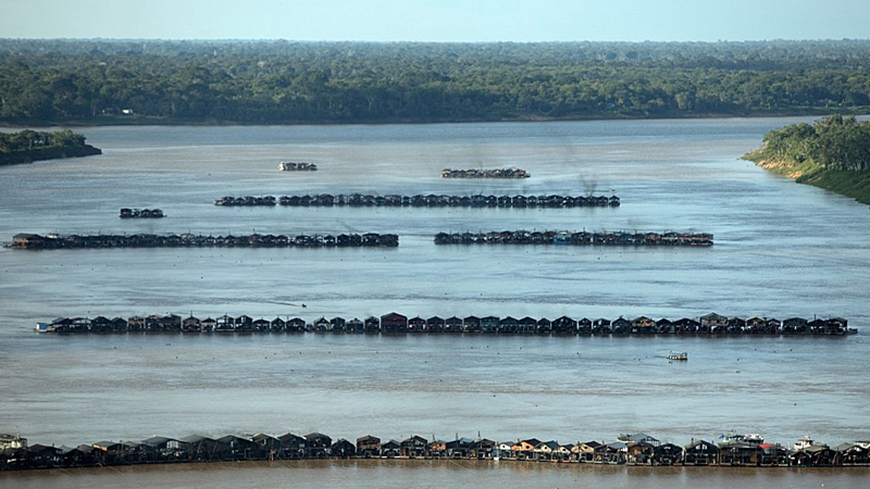
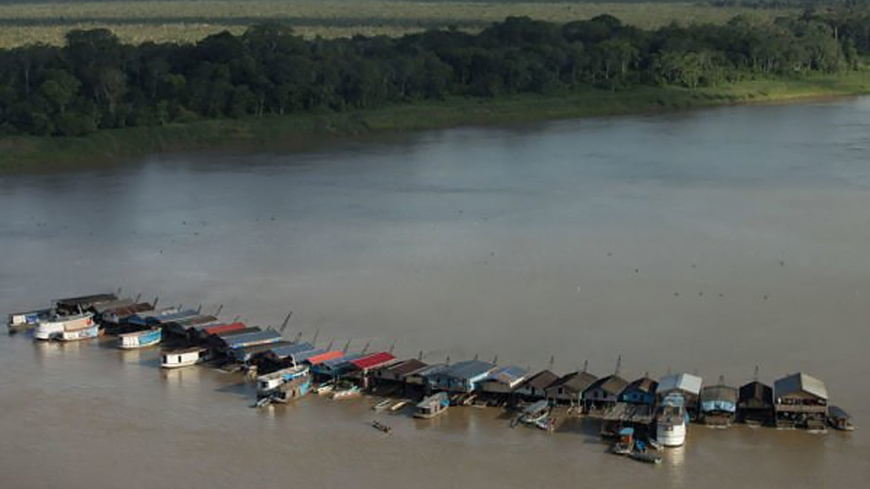
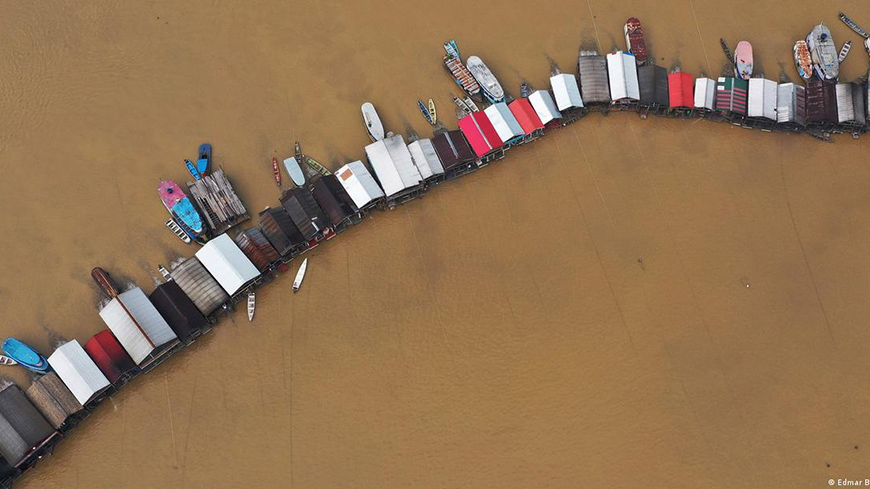
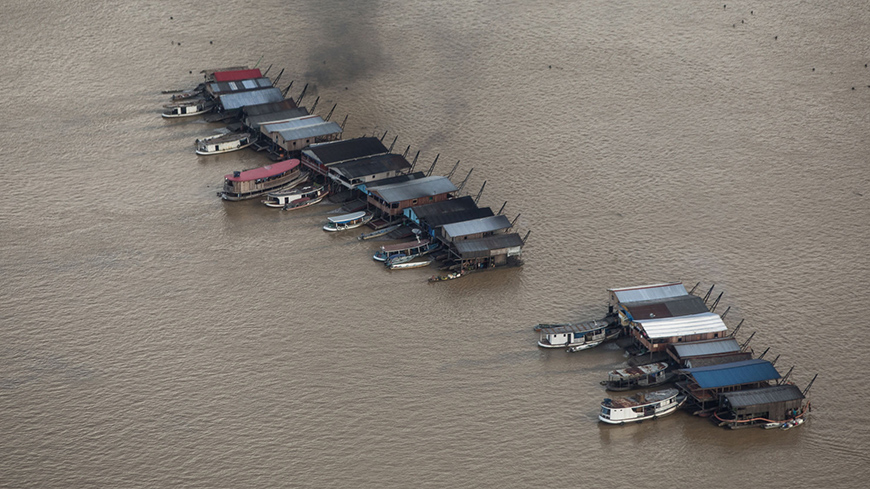
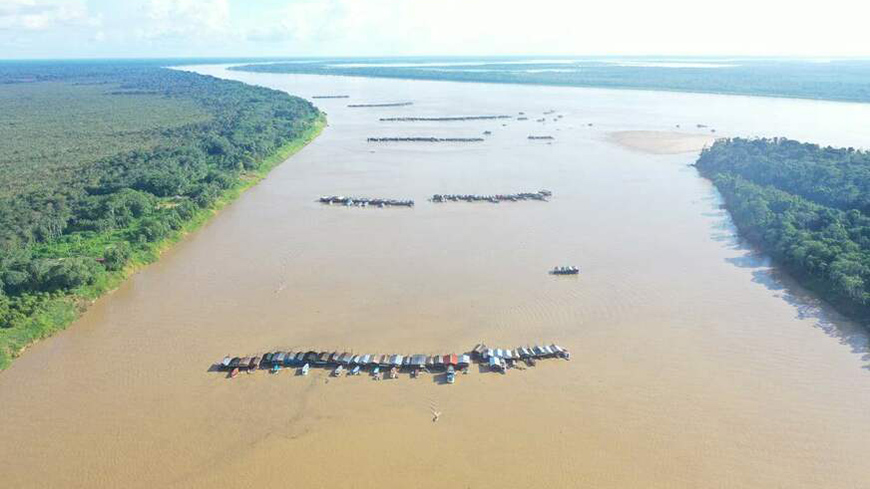
Apparently, the onrush was triggered after rumours of a substantial discovery of gold in the river stretch near Autazes, about 120 km from the capital of Amazonas, Manaus. Until then, that stretch of the river was not known to hold the precious mineral.
The initial reaction of the Federal Police and IBAMA to the escalating problem was to shift the responsibility to the Amazonas state government and environmental agency (IPAAM). The National Mining Agency (ANM), in turn, contended the matter does not fall within its jurisdiction because it is not a legal mining activity but a criminal act that must be dealt with by the competent law enforcement authorities.
As the mounting situation on the Madeira made international headlines, the impasse over jurisdiction was quickly resolved. Since 27 November 2021, the Federal Police have joined forces with the Brazilian Navy and IBAMA to curb the illicit practice.
The illegal miners, who rely on the sympathy of the local communities – and the veiled support from local politicians and miners’ unions –, had enough time to flee the scene; though some of them left in a hurry moments before the arrival of the security forces, leaving the rafts and their belongings behind.
Yet, by 30 November 2021, when most of the task force demobilised, the authorities had managed to seize and burn down at least 131 crafts during the unprecedented operation. Three people were arrested in the act but released afterwards with restraining orders. So far, the task force has not disclosed a complete account of assets held in the so-called “Operation Uiara”.
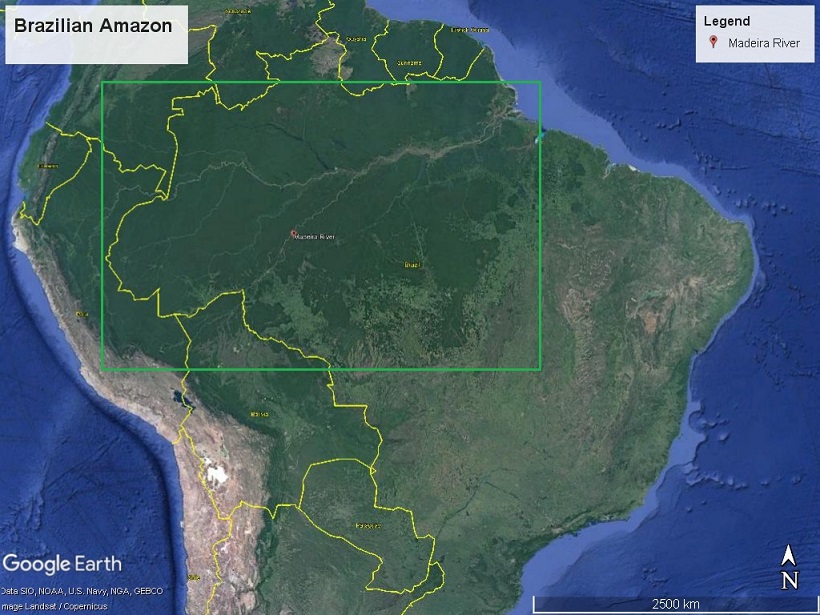
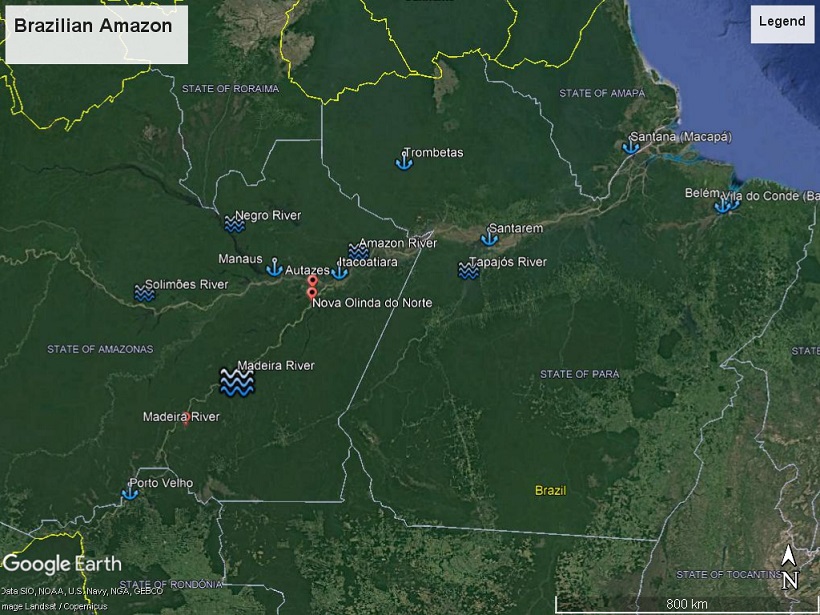
After the operation partially dismantled the raft gatherings, the miners demonstrated in various riverine cities of Amazonas. A delegation of mayors and miners’ unions from towns along the Madeira River are meeting state and federal authorities to discuss assistance to the hundreds of families left homeless after the police raid and take steps to legalise the activity.
Rows of hundreds of mining rafts remain upriver from where the police action occurred, suggesting that they will resume the dredging for gold just as soon as the situation settles down.
Meanwhile, in the course of a Civil Public Action commenced by the Federal Prosecutor’s Office for the Environment (MPF) against IPAAM and the Miners Cooperative of the Amazon (COOGAM), since 2017, all licences issued by the state environmental agency for gold prospection in the Madeira are revoked by court order. The case is under appeal at the Federal Court of Appeals, with no final judgment forecast.
The Amazon region is home to the Northern Arc ports of Manaus, Itacoatiara, Santarém, Trombetas, Juruti, Vila do Conde/Barcarena, Belém, and Santana/Macapá. In addition to passenger boats, ferries and ocean-going cargo vessels that ply these river ports, large convoys of barges pushed or pulled throughout the inland waterways carrying agriproducts, vehicles, containers, and fuel.
The most common – and possibly underreported – types of maritime accidents in the region are groundings and collisions between ocean-going vessels and smaller crafts (barges, riverboats, mining rafts and canoes) and fixed and floating objects (buoys, jetties, fenders and piers).
Over the long stretches of the Madeira and the Solimoes Rivers, unlit mining rafts and dredgers engaged in illegal gold mining remain a constant threat to commercial navigation in the region.
Basic navigation recommendations for the Amazon region
The Brazilian law enforcement authorities do not have enough workforce and equipment – sometimes even the will – to effectively prevent illegal activities and crimes in the thousands of miles of the Amazon waterways. The police tend to deploy their scarce resources in more densely populated areas, leaving remote river stretches at the mercy of criminals, who are local and can resort to a formidable array of river narrows, inlets, and straits to escape after an attack.
Incidents of attempted piracy and armed robbery on foreign vessels in the Amazon are likely underreported. Despite this, there are records of armed robberies off Macapá anchorage, in the Amazon’s North Bar.
On the inland waterways, reports of armed robbery and pilferage abound. Criminals target cargo and passenger boats. The most sought-after items, besides personal belongings, are fuel, household appliances and electronics. The river marauders, known locally as “river rats”, are relentless and ambush boats and barges after dark in remote locations with no telecommunication where patrol boats rarely venture.
Attacks have occurred on the Madeira River, the stretch between Coari and Manaus and Manaus and Parintins, the Macapá anchorage, the South Bar of the Amazon, Belém and the Breves Straits. Illegal fuel trade – to supply clandestine gold mining, drug trafficking, riverside communities power generators, and the illicit market – and disputes between cross-border drug smugglers and river raiders are a significant cause of violent crimes in the region.
Basic safety recommendations for the Amazon region:
In at least one incident earlier this year, an ocean-going bulk carrier had illegal drugs planted in its hull while loading soya beans alongside the public port of Santarém on the Tapajós River. Read more about measures to prevent drug smuggling on vessels.
Please read our disclaimer.
Related topics:
Rua Barão de Cotegipe, 443 - Sala 610 - 96200-290 - Rio Grande/RS - Brazil
Telephone +55 53 3233 1500
proinde.riogrande@proinde.com.br
Rua Itororó, 3 - 3rd floor
11010-071 - Santos, SP - Brazil
Telephone +55 13 4009 9550
proinde@proinde.com.br
Av. Rio Branco, 45 - sala 2402
20090-003 - Rio de Janeiro, RJ - Brazil
Telephone +55 21 2253 6145
proinde.rio@proinde.com.br
Rua Professor Elpidio Pimentel, 320 sala 401 - 29065-060 – Vitoria, ES – Brazil
Telephone: +55 27 3337 1178
proinde.vitoria@proinde.com.br
Rua Miguel Calmon, 19 - sala 702 - 40015-010 – Salvador, BA – Brazil
Telephone: +55 71 3242 3384
proinde.salvador@proinde.com.br
Av. Visconde de Jequitinhonha, 209 - sala 402 - 51021-190 - Recife, PE - Brazil
Telephone +55 81 3328 6414
proinde.recife@proinde.com.br
Rua Osvaldo Cruz, 01, Sala 1408
60125-150 – Fortaleza-CE – Brazil
Telephone +55 85 3099 4068
proinde.fortaleza@proinde.com.br
Tv. Joaquim Furtado, Quadra 314, Lote 01, Sala 206 - 68447-000 – Barcarena, PA – Brazil
Telephone +55 91 99393 4252
proinde.belem@proinde.com.br
Av. Dr. Theomario Pinto da Costa, 811 - sala 204 - 69050-055 - Manaus, AM - Brazil
Telephone +55 92 3307-0653
proinde.manaus@proinde.com.br
Rua dos Azulões, Sala 111 - Edifício Office Tower - 65075-060 - São Luis, MA - Brazil
Telephone +55 98 99101-2939
proinde.belem@proinde.com.br